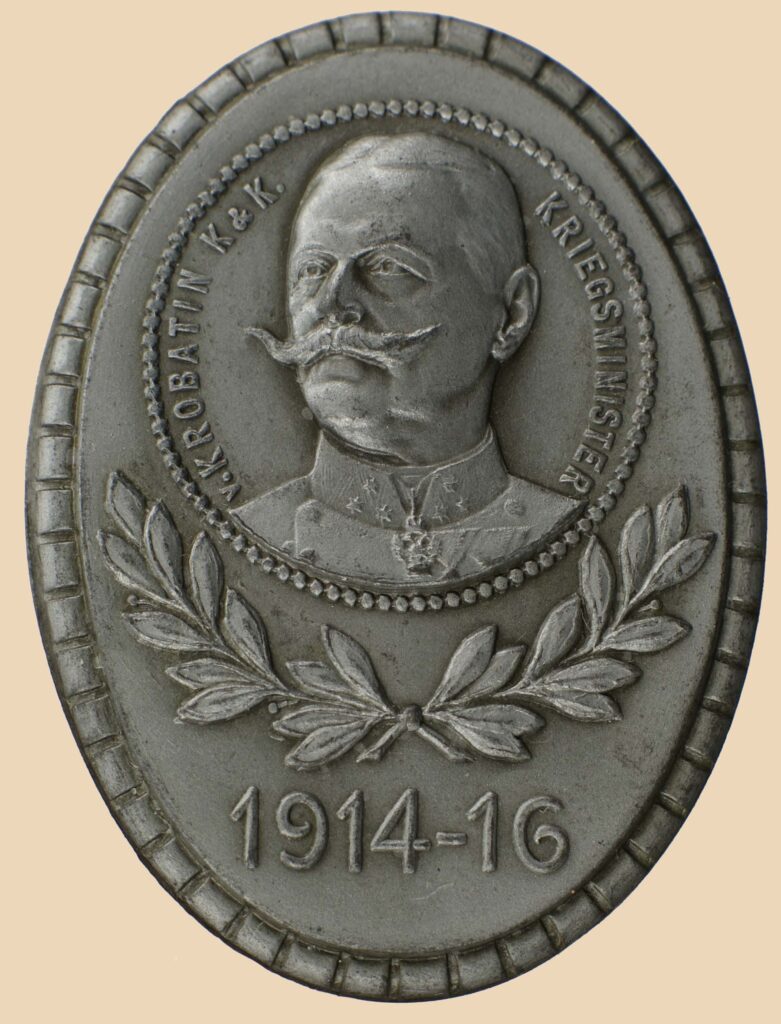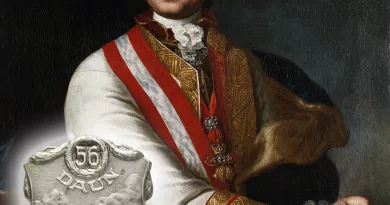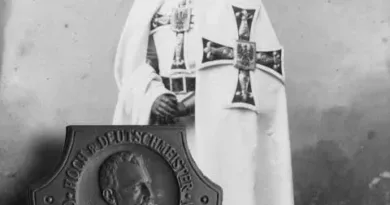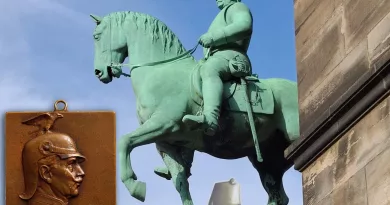Alexander von Krobatin
Alexander von Krobatin (1849-1933) was an Austrian artillery officer, and from 1912 to 1917 he was Minister of War of the Monarchy. His father reached the rank of lieutenant colonel from a low line, starting as a private, and gained nobility in the army of the Monarchy. After graduating from schools, Alexander Krobatin entered actual service in 1869 in the rank of lieutenant. He also studied chemistry in Vienna while in the 3rd Fortress Artillery Battalion. Between 1877-85 he graduated from the Military Technical Academy and was promoted to captain. From 1885 he served as an artillery officer in various positions. He became a colonel in 1895 and was also appointed commander of the 1st Corps Artillery Division.
In 1896 he was employed by the Ministry of Defense. In 1900 he was promoted to major general. He received increasingly high positions in the ministry. In 1910 he was a general of the atillery, and from 1912 he was a minister of war. The Minister was responsible for organizing war preparations, including the equipment of the armed forces and the organization of military production. He was an important pro-war ally of Chief of Staff Conrad. Finally, he ordered the mobilization against Serbia on July 30, 1914. In connection with his work, analysts emphasize that he played a major role in the significant development of the artillery branch. In connection with this, the organization of the production capacities necessary for the material supply of artillery was also an important task. The other priority area is addressing the supply of food to the army. In this, the main task was to secure deliveries from the later enemy, Romania. In 1916 he was promoted to colonel-general and elevated to the rank of baron by the ruler.

Krobatin resigned from the ministry in March 1917. This was partly due to the less militant political line of the new ruler Charles I. He also removed Chief of Staff Conrad. The other reason was his requisition decree to replace Romanian grain deliveries, which had been lost since mid-1916, which was not well received and criticized by politicians. Following his resignation, he was entrusted with the command of the 10th Army in Tyrol. This played a significant role in the successful attack of November 1917. Krobatin was promoted to field marshal. In the 1918 events, the 10th Army no longer had such an important role.
The badge, decorated with a portrait of the colonel general, is part of a series of portraits of the Arkanzas Company of Budapest. It is a nice, clean badge. According to the dating, it was made in 1916.




